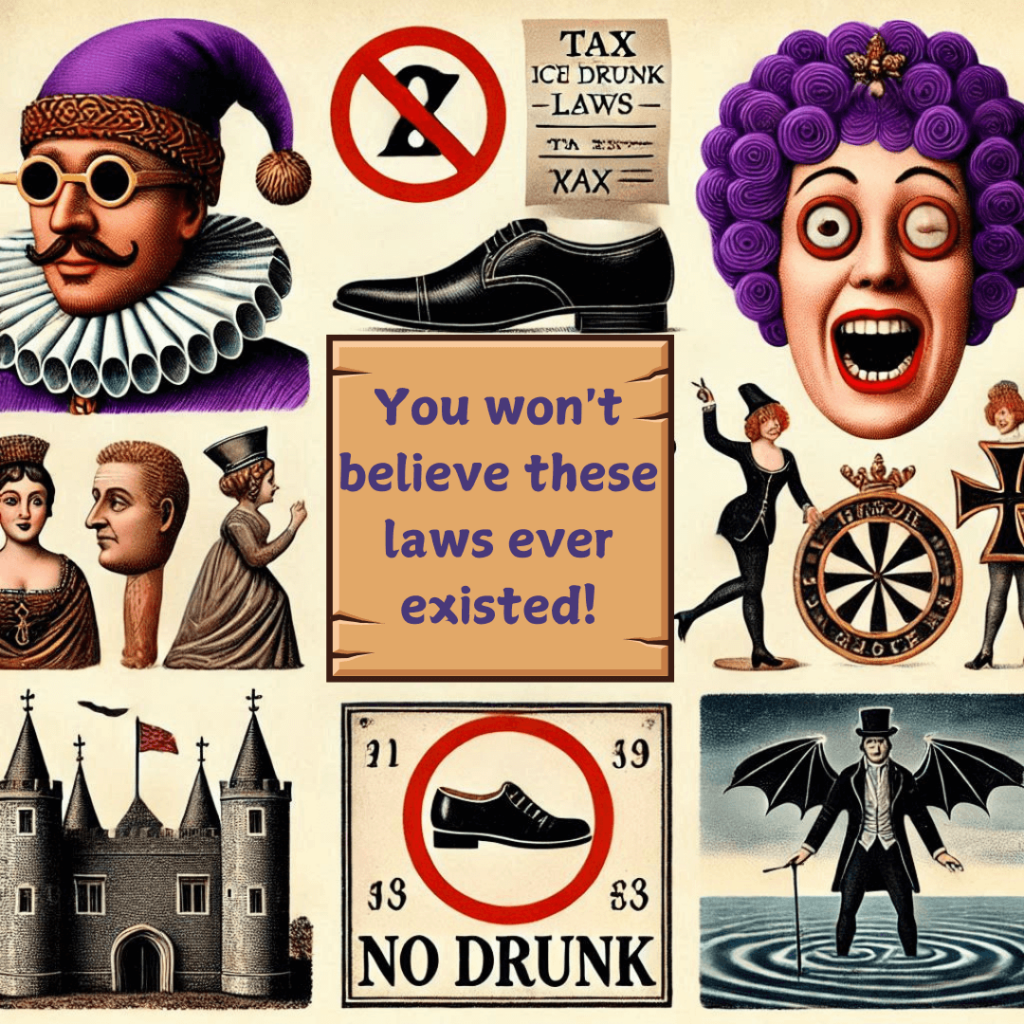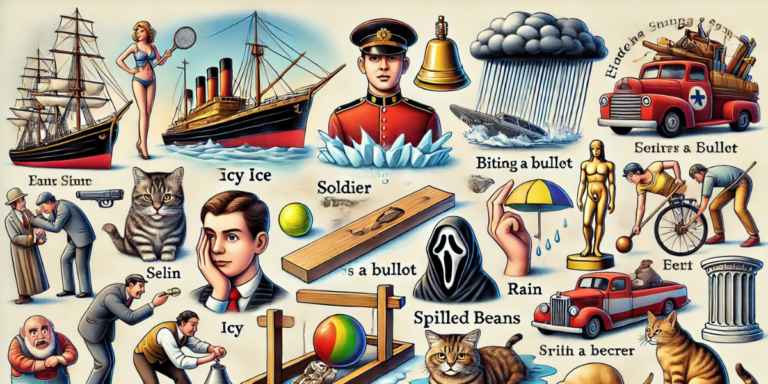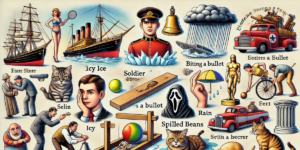Weird Laws from History That’ll Make You Wonder
You’d think lawmakers were sipping something extra strong when they came up with these. From bizarre fashion rules to mandatory smiling, these w give us a hilarious peek into the priorities of past societies. Let’s take a trip and discover some fascinating weird laws from history that are so weird, you’ll wonder if they were written on a dare.
1. No Wearing Purple for Commoners (Ancient Rome)
If you wore purple in Ancient Rome without being royalty, you might as well have put a “kick me” sign on your toga. As purple dye was expensive, it was reserved for the emperor and VIPs. For commoners, it’s like showing up to a royal banquet in a fake Rolex — not a good look.

Rumor has it, some cheeky commoners tried to DIY their own purple dye and got caught rocking counterfeit royalty — cue the toga smackdown.
2. Wigs Were Taxed (Russia, 1700s)
Peter the Great wasn’t just the Tsar of Russia; he was the Tsar of Sass. He imposed a wig tax because he was tired of seeing people trying too hard with their hair. It’s like saying, “You can wear a wig, but it’ll cost you.”

Imagine paying for a wig and getting inspected by the fashion police — Peter personally checked people’s wigs, making sure no one was pulling off a bad hair day on the cheap.
3. No Chewing Gum (Singapore, 1992-Present)
Singapore isn’t just about clean streets; they’re about perfect streets. Singapore loves cleanliness so much that chewing gum became a crime. Spit it out on the street, and you might as well have set off a citywide alarm. You can still chew medicinal gum, but you better have a doctor’s note ready — or risk becoming public enemy #1 with a minty-fresh breath.
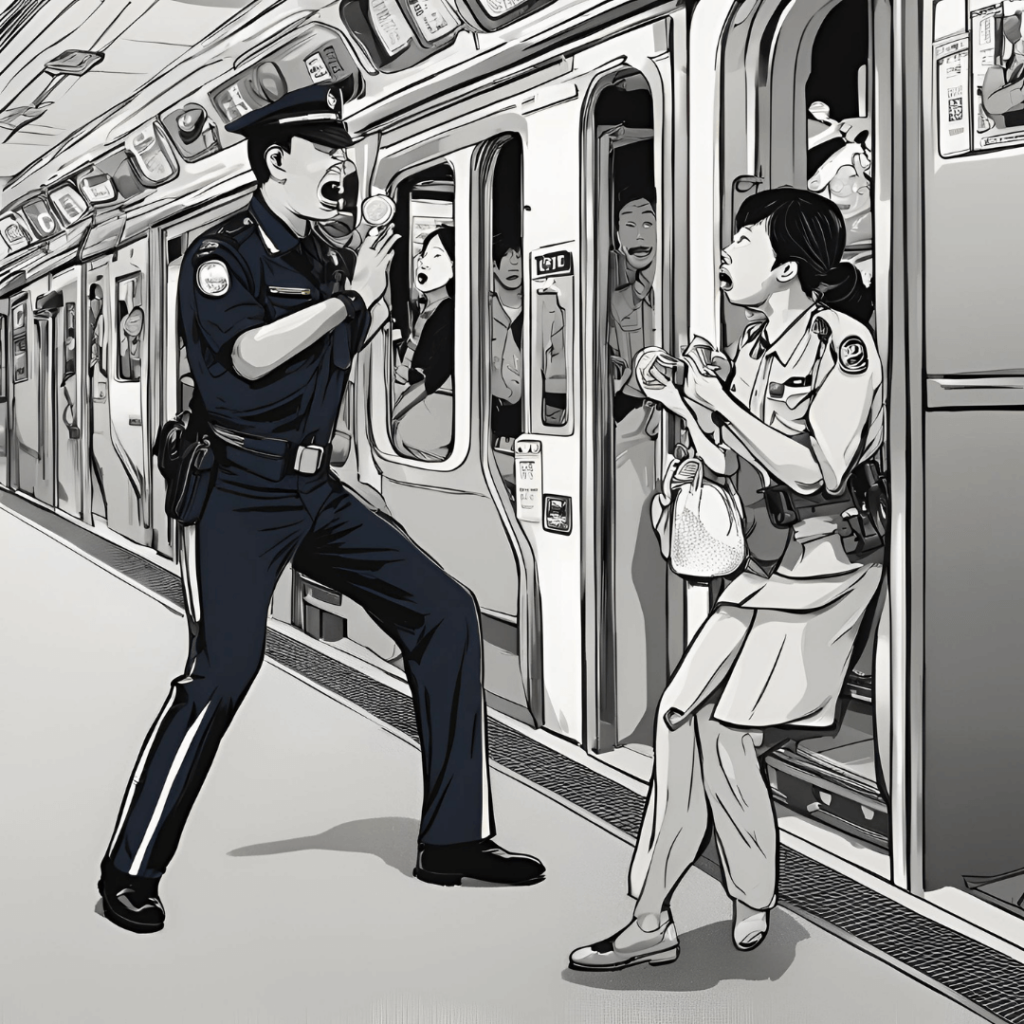
Rumor has it that chewing gum in Singapore became so rare, tourists would sneak it in like they were carrying contraband. Imagine getting caught with a pack of gum like you’re smuggling diamonds.
4. You Must Smile (Milan, Italy, 19th Century)
Milan was the fashion capital, but apparently they thought smiles were part of the outfit. It was rumored that the local government decided people should be happy — especially on Sundays, of course. You had to smile in public, or you risked a fine.
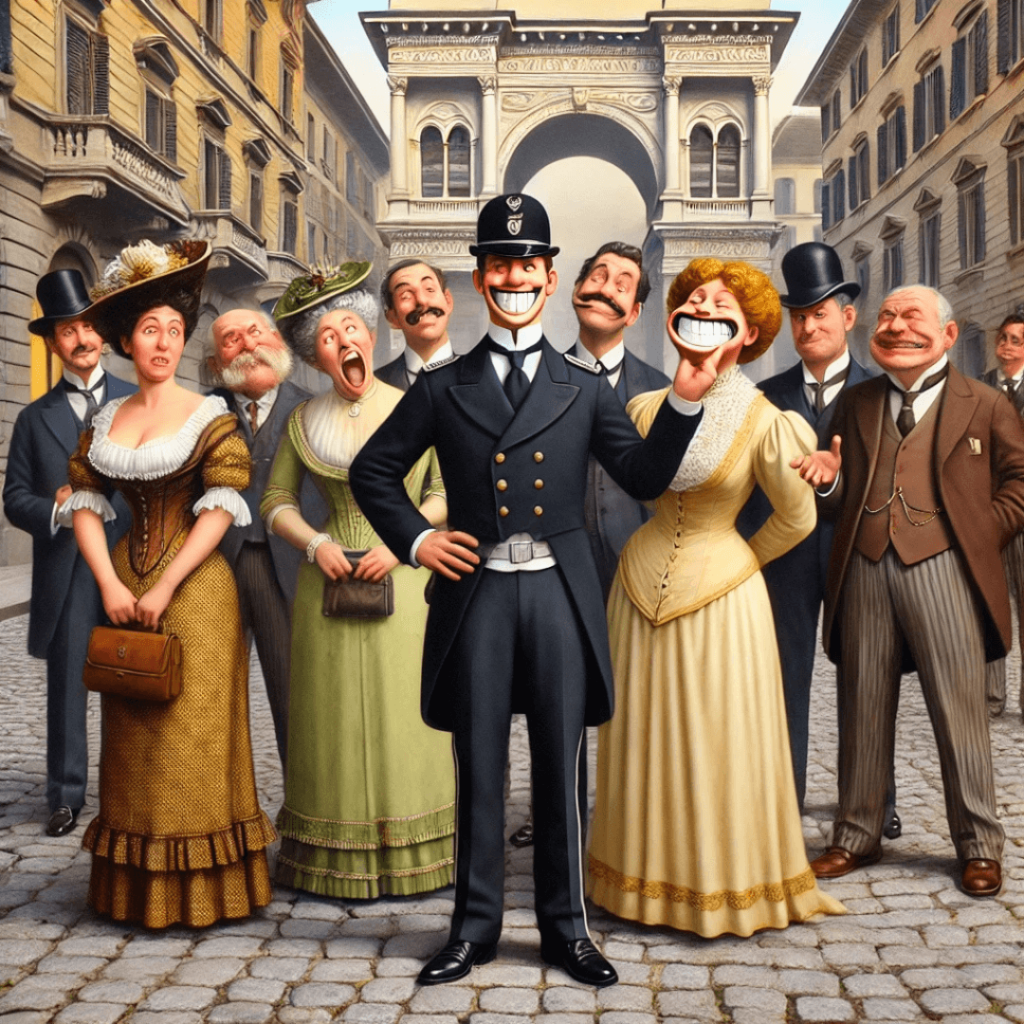
So, if you weren’t feeling bubbly, you had to fake it ’til you made it or pay up. No “resting grumpy face” allowed!
5. No Ice Cream Cones on Sundays (USA, Early 1900s)
In the early 1900s, America had these things called blue laws, which were basically “let’s ban anything fun on Sundays” laws. One of the weirdest? No ice cream cones on Sundays! Apparently, eating ice cream was too frivolous for the Sabbath.
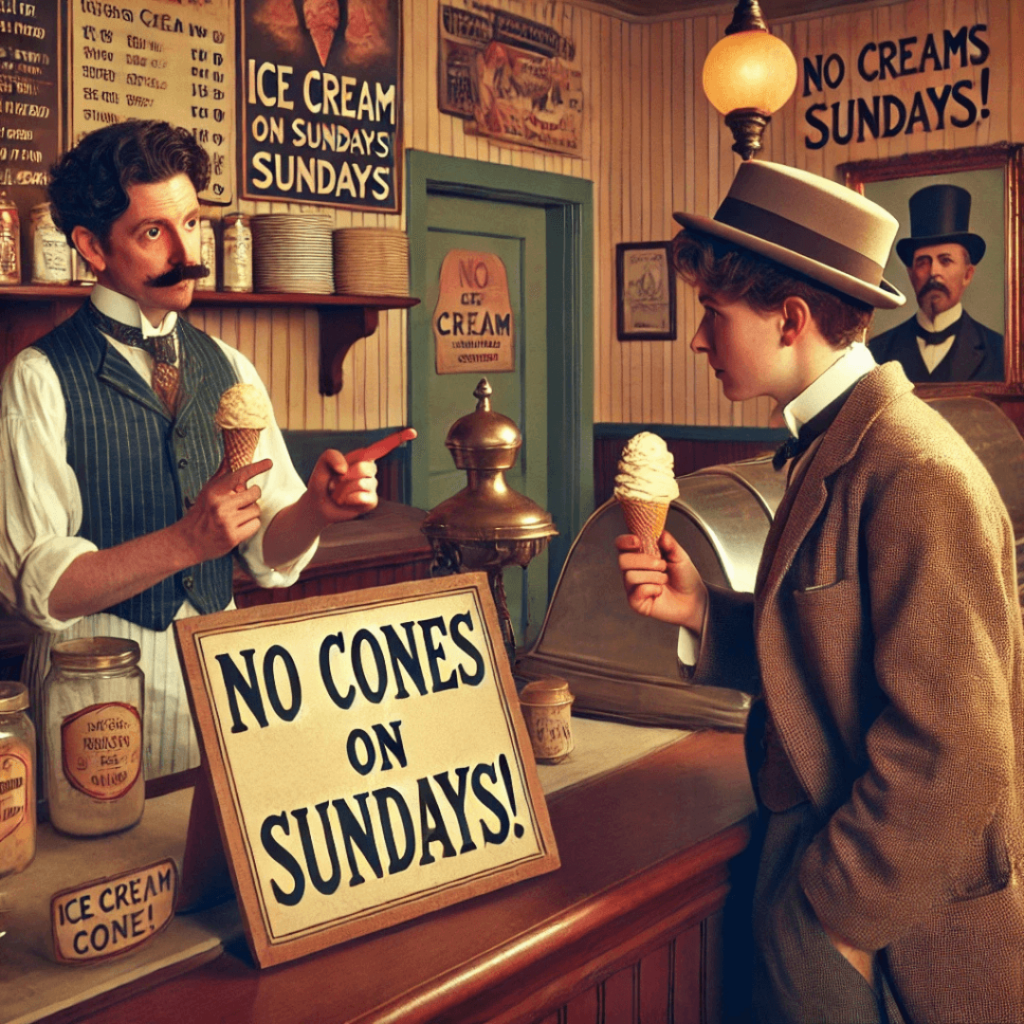
Imagine walking into a shop, trying to get a cone, and being like, “Sorry, but only cups are allowed. It’s God’s Day, not Cone Day.”
6. No Pointy Shoes (England, 15th Century)
Shoes with comically long, pointy toes (called “poulaines”) were so popular, King Edward IV had to step in — literally. He banned any shoe with toes longer than two inches. Apparently, medieval fashionistas were tripping over their own style.

The rumor is that the long pointy shoes weren’t just a tripping hazard; they were a sign of excessive vanity. Edward was probably jealous, because if you can’t rock a pointy-toed look, why let anyone else?
7. It’s Illegal to Be Drunk in a Pub (England, 1872-Present)
This one’s still on the books! In England, it’s technically illegal to be drunk inside a pub. So, you can buy the drinks, you just can’t enjoy them too much. Imagine getting kicked out of a bar for doing exactly what bars are for.
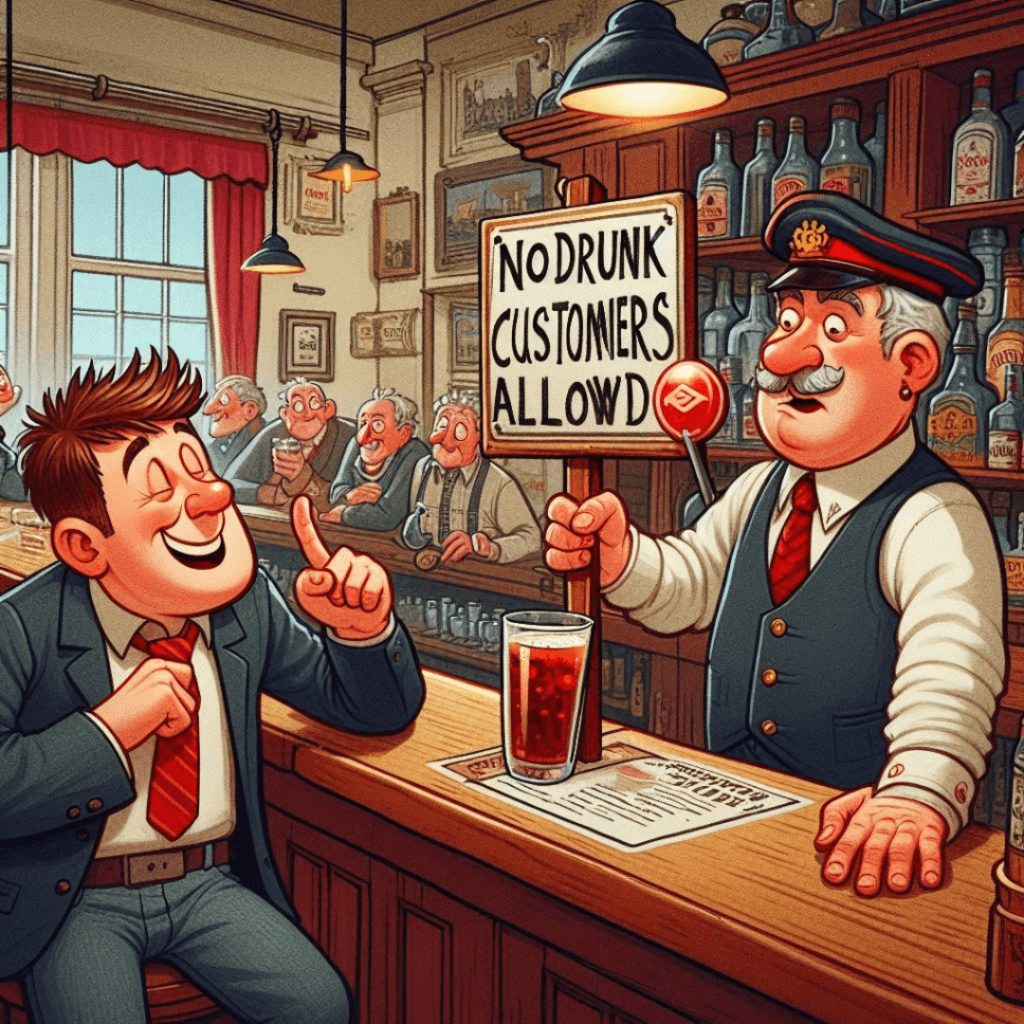
But here’s the funny part: people still get absolutely wrecked in pubs while staying within the law, so it’s one of those laws that’s almost never enforced.
8. No Carrying Ice Cream in Your Back Pocket (USA, 1800s)
Yes, there was a law against putting ice cream in your back pocket. Why? Horse thieves used this trick to lure horses away. Crime does pay — in melted ice cream and confusion.
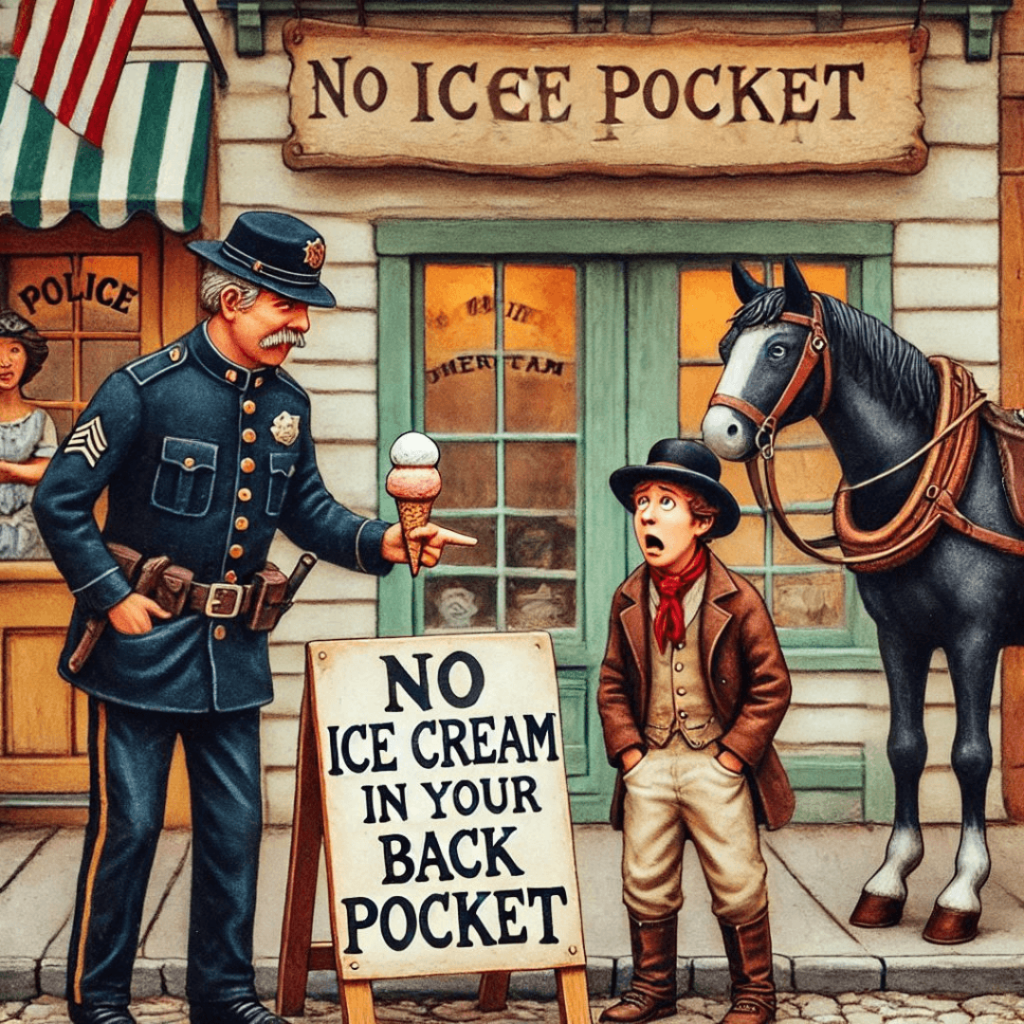
But seriously, imagine the thief who thought, “I’ll put this ice cream in my pocket, and no one will suspect a thing!”
9. No Kissing in Public on Sundays (Connecticut, 1600s)
Colonial-era Connecticut took the phrase “get a room” to the extreme. If you kissed your spouse in public on a Sunday, you risked punishment. Because nothing sets the scene for romance like a judgmental Puritan and a ticket for your troubles.
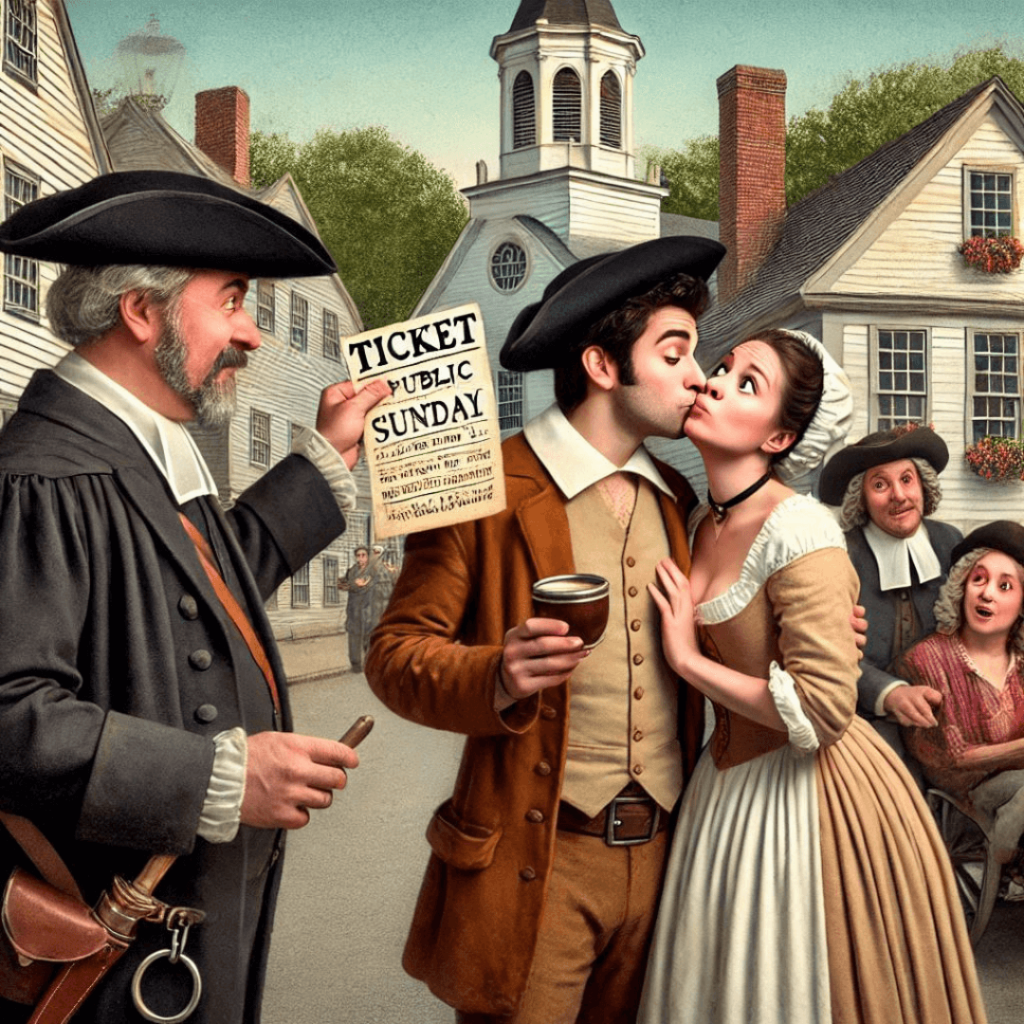
If you kissed your spouse? Better hope it was Monday.
10. Trial by Ordeal for Witchcraft (Medieval Europe)
If you were accused of witchcraft, you got the fun choice of several deadly tests called “trial by ordeal.” One popular method? The water test: if you floated, you were guilty; if you sank, congrats — you were innocent but also, well… drowned. A classic case of “damned if you do, drowned if you don’t.
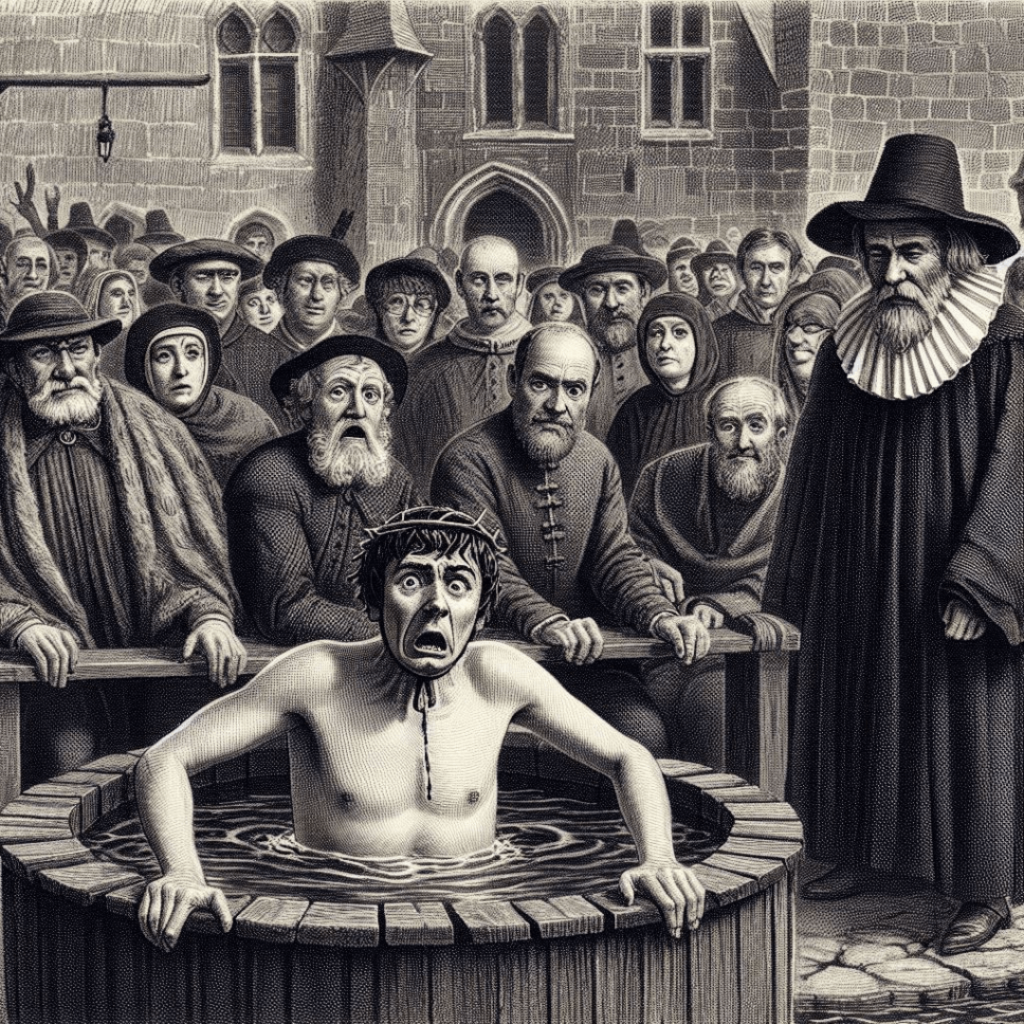
Some conspiracy theorists claim that the trial was a convenient way to remove political rivals. Who needs a fair trial when you can just sink someone?
Weird Laws from History: Final Thoughts
History’s lawmakers were wild. Whether they were banning purple togas or enforcing compulsory cheer, these rules prove that sometimes, the law was just plain weird. Which of these bizarre laws surprised you the most? Let us know — just make sure you’re smiling, or the Milanese police might be after you!
Discover more bizarre historical facts and curiosities on our blog. Click here to dive into Unsolved Mysteries: That Have Stood the Test of Time.

